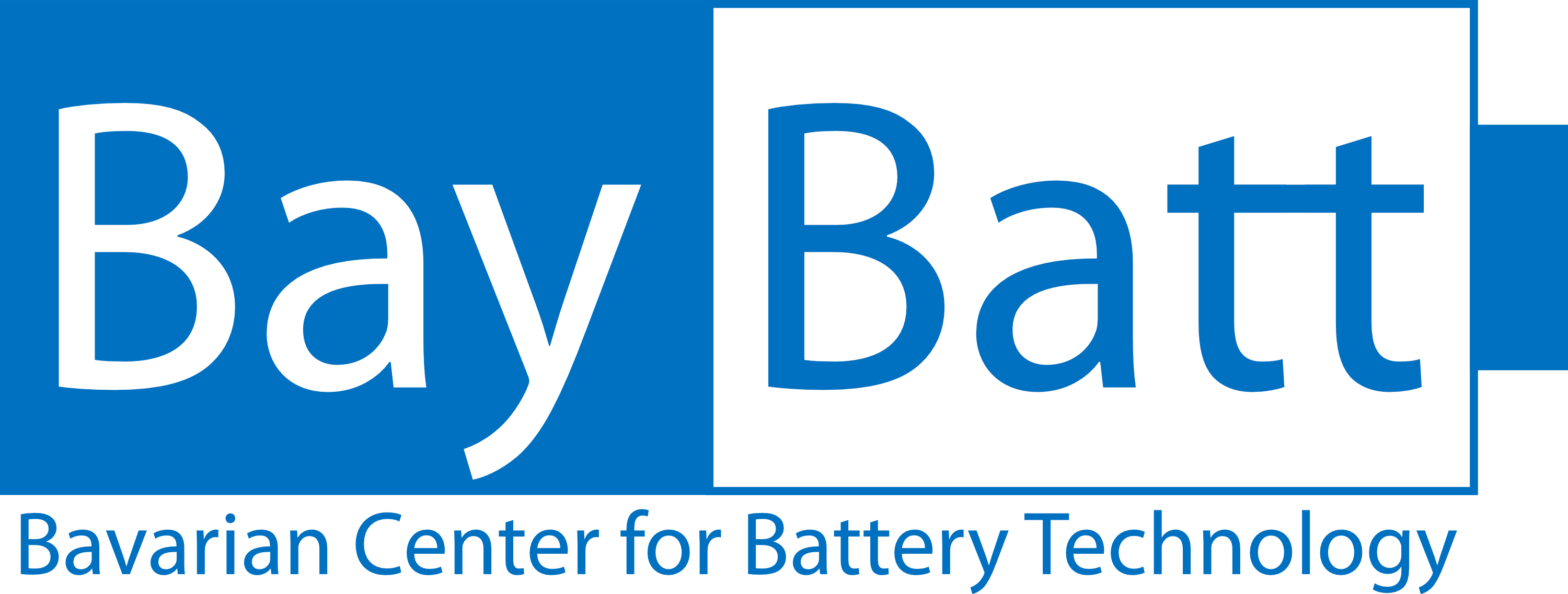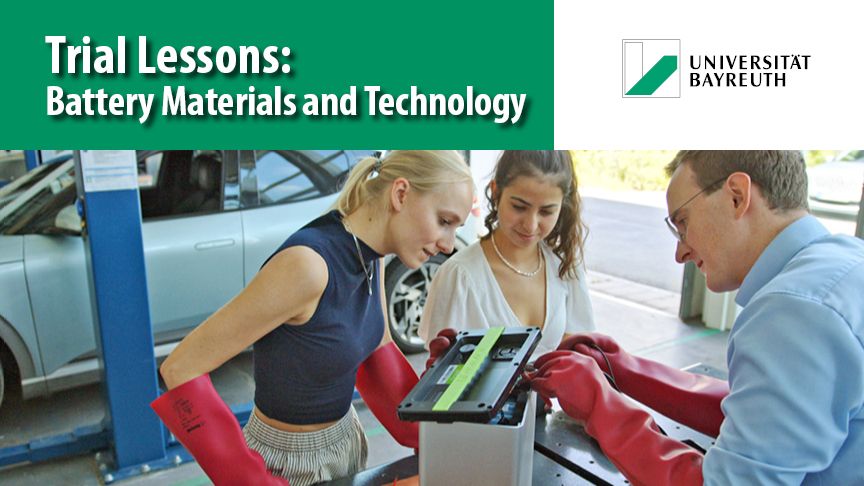News
New MOOC format: Trial Lessons Battery Materials & Technology
15.09.2025
Are you looking for an innovative and practical master's programme and want to play an active role in shaping the energy transition in your professional life? Do you have a bachelor's degree in natural sciences or engineering (or are about to graduate) and are interested in issues along the entire battery value chain? But you are unsure what to expect from the interdisciplinary programme Battery Materials and Technology, which is unique in Germany? Then take a look at our new online format Trial Lessons: Battery Materials and Technology!
The course is divided into five chapters (from battery materials to electrode design to smart batteries), which provide an insight into the range of topics covered in the programme and allow you to get to know some of our lecturers and the topics they deal with in their lectures in advance. ‘To develop battery systems, you need knowledge from the fields of chemistry and engineering. That's why we designed this programme to be truly interdisciplinary,’ says Prof. Dr.-Ing. Jan Philipp Schmidt, summarising the intention behind the programme and the MOOC. Each chapter of the MOOC contains a short introduction, a 15-30 minute video, and additional information about the respective lecturer.
The course was developed over the past few months in cooperation between BayBatt and the Centre for University Teaching (ZHL) at the University of Bayreuth and is available free of charge on our partner platform edX.
The trial lessons are designed to give prospective students an insight into actual lectures on campus and help them find out whether the programme suits them and their profile.
The Battery Materials and Technology (M.Sc.) programme addresses key questions such as: Which materials will be used for more efficient and sustainable batteries in the future? How can we make batteries safer and produce them more cost-effectively?
In this way, it prepares students for future challenges in the field of sustainable and renewable energies. In addition to lectures and seminars, it is particularly important to apply what has been learned in the laboratories of the chairs as part of the research modules. Course moderator Prof. Dr. Matteo Bianchini emphasises: ‘If you decide to study Battery Materials and Technology in Bayreuth, we offer you the opportunity to actively participate in research projects in our laboratories, for example, trying to synthesise and characterise the battery materials of the future.’
The programme is taught in English and has a natural science focus. However, students also have the opportunity to take modules from the German-language sister programme Battery Technology, which is taught in German and has an engineering focus. Both programmes deal with fundamental and applied issues of energy storage and impart qualifications that are currently in high demand on the job market.
You want to find out if this is the right study programme for you? Then register for the edX course here.


